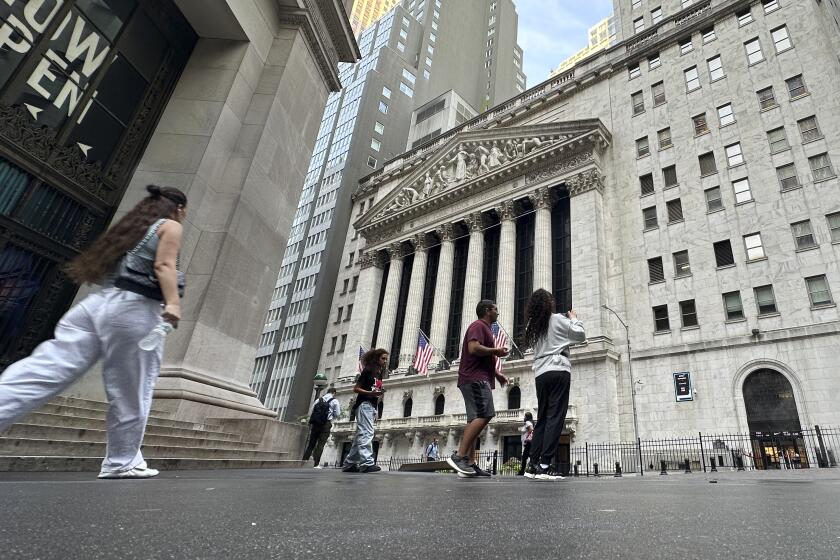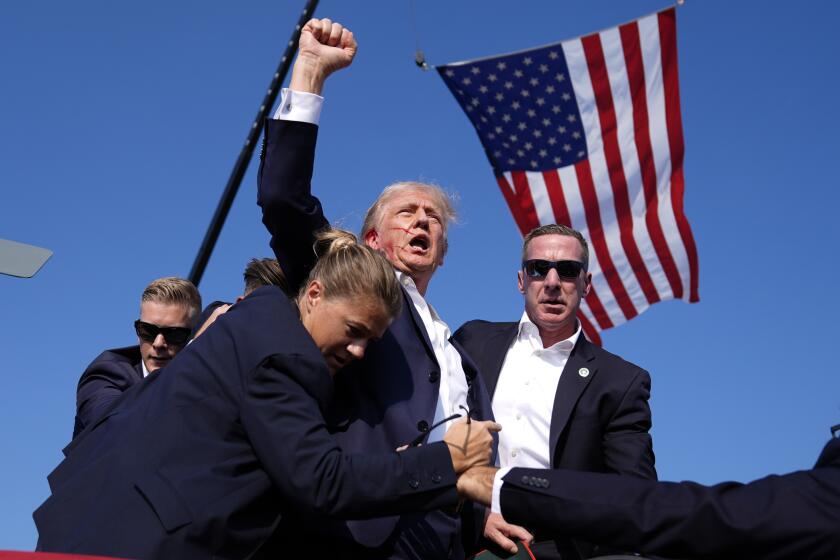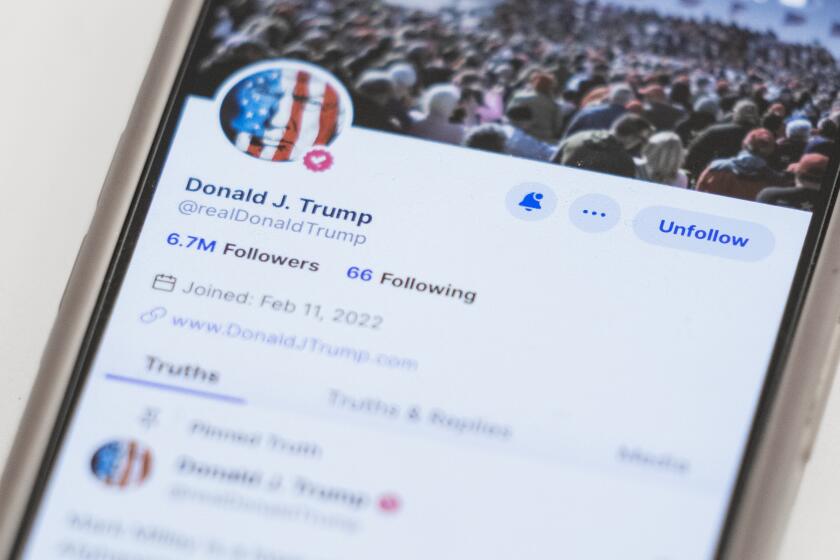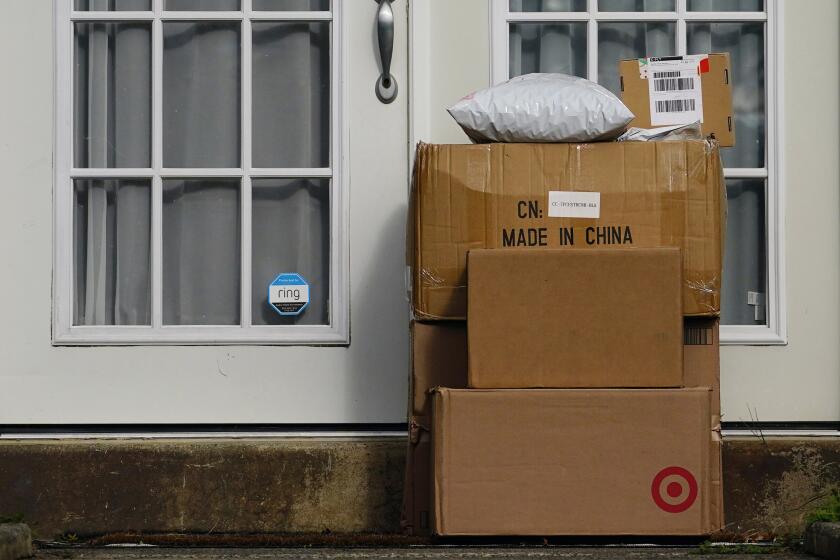VOICES FROM THE FIRST GENERATION : The Razi Family
ALI RAZI TALKS about Feb. 12, 1979, like it was the day he died.
On a business trip in London, he had awakened to a cup of coffee and the morning news. The president of a mega-corporation in Tehran, he sat on the edge of his hotel bed listening to an inconceivable TV report--the Imperial Iranian Army of Shah Mohammed Reza Pahlavi had surrendered to the Ayatollah Ruhollah Khomeini.
“Twelve hours later, my secretary called and said, ‘There is an ayatollah sitting on your desk, taking over the company,’ ” he recalls. The young woman told him that it wasn’t safe to return to Iran especially after she had informed the ayatollah that he could never replace a man as great as Razi.
Razi still cannot tell the next part of the story without crying. His wife, Anousheh, must finish it for him.
The company he started from nothing and built into a construction giant with $250 million in sales, 5,000 employees and joint ventures around the world had become a memory in just a few hours.
The Razis, with their daughter and two sons, came to Los Angeles in late 1979 carrying a few suitcases, some savings and the hope that Razi’s business experience would help them get by.
The family has done better than just survive in the 10 years since. Razi, 48, and Anousheh, 46, have woven themselves into the fabric of Los Angeles politics and business. He is a partner in a Newport Beach development company, and she is a member of the country club set in Bel-Air. Both are active in national politics and local charities.
“There is a Persian poet who says a human being is like a nail,” Razi says. “The more you hammer on top of it, the more it is driven in and becomes stronger.”
The metaphor drives the Iranian community in Los Angeles, which has absorbed at least 400,000 refugees--including a large, well-educated group of doctors, poets, architects, actors, engineers and attorneys--who fled the fall of the Shah’s regime in the late 1970s and early ‘80s.
The 848-page Iranian Yellow Pages for Southern California is a testament to their success in the United States--about 1,600 businesses and professionals are listed, including 91 dentists and 58 accountants.
Nowhere in Los Angeles is the Iranian presence stronger than on the half-mile strip of Westwood Boulevard near UCLA that is an eating and shopping mecca. Everything from Burger King to the used-car lot is Iranian-owned.
On Sunday afternoons, Iranian families stroll down the street bumping into friends and celebrities, including the Shah’s nephew, Shahbaz Pahlabod. The smell of taftoon bread sneaks out of sidewalk cafes to tantalize passers-by, while local bakeries entice them with trays of Persian treats. Fortune-cookie messages are printed in Farsi.
For many children, the weekly pilgrimage is really a field trip. Westwood Boulevard is the only place they have ever been that even remotely resembles Iran.
The Razis’ youngest son, Keyvan, 12, has no recollection of his year and a half in Iran and speaks Farsi with an American accent. He prefers pizza and Gatorade to chicken kabob and a glass of doogh .
Parents fear that their children will see Iran only through the eyes of the media--hordes of Muslims denouncing the United States or staring into the moon hoping for a glimpse of the ayatollah.
“The younger generation will not go back,” Razi says. “It’s not practical. They will go to help, but this is where they know and this is where they are going to stay.”
Keyvan’s grandmother, meantime, is simply hoping to live long enough to see the day she can return. Badri Dadsetan, 77, left Iran with great reluctance. She was finally forced to get on a plane after the chants of Allah Akbar --God Is Great--finally unnerved her son-in-law. Razi and Dadsetan were the last two holdouts--the rest of the family had fled to London months earlier. None has ever returned to Iran.
Now Dadsetan spends three hours every day listening to Farsi television and radio and tries to read many of the 20 or so Iranian magazines and newspapers published in the Los Angeles area.
She is a representative of a small component within the Iranian population in Los Angeles that doesn’t speak English and rarely talks to outsiders. They drive back and forth on Coldwater Canyon because it reminds them of the road to Chalus, and they sit on the shores of the Pacific pretending it’s the Caspian Sea. They miss the sounds of street vendors selling watermelons and hot beets and the smell of the grass in Iran.
“Even today she is incredibly upset,” Niloofar, the Razis’ daughter, says. “All her thoughts are still on Iran.”
But the rest of the family says this is now their home. For several years, Razi has taken a leadership role in local Republican Party politics, even traveling to Sacramento to cast an electoral vote for George Bush. Now Niloofar, 21, and her brother Babak, 23, are joining political groups, too.
“We got a lesson from the revolution,” Razi says. “In Iran, we thought we do our profession, and politics is taken care of by the government. We learned that we have to be active.”
Early this year, Razi and Anousheh watched from the steps of the U.S. Capitol as George Bush became the nation’s 41st President.
“It was democracy in action. This country stands for freedom and liberty, and sometimes I think the newcomer appreciates that more than some of the people who are born here,” Razi says. “It’s important to keep this dream going.”






